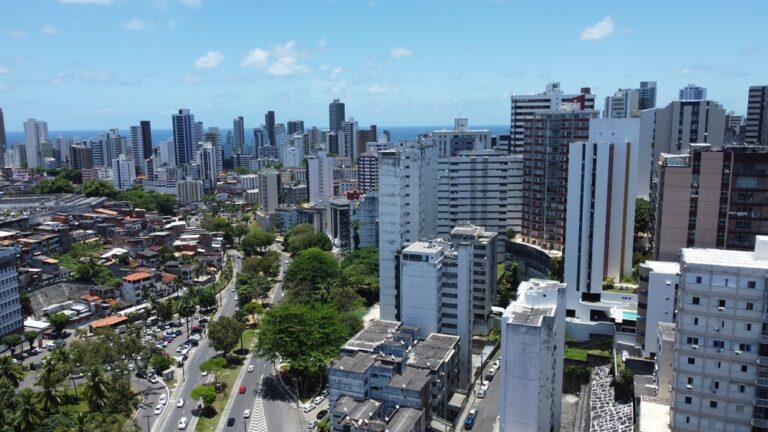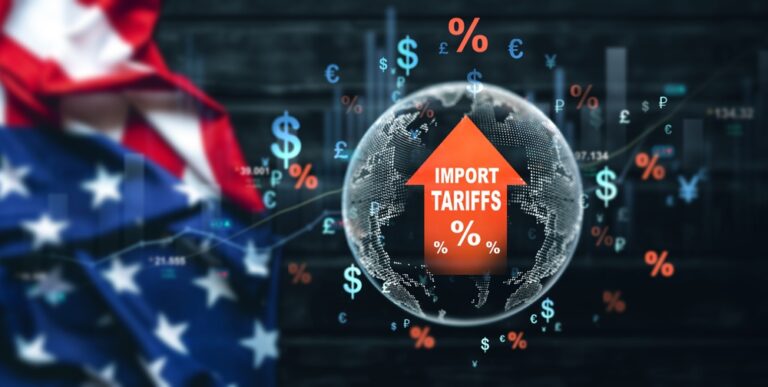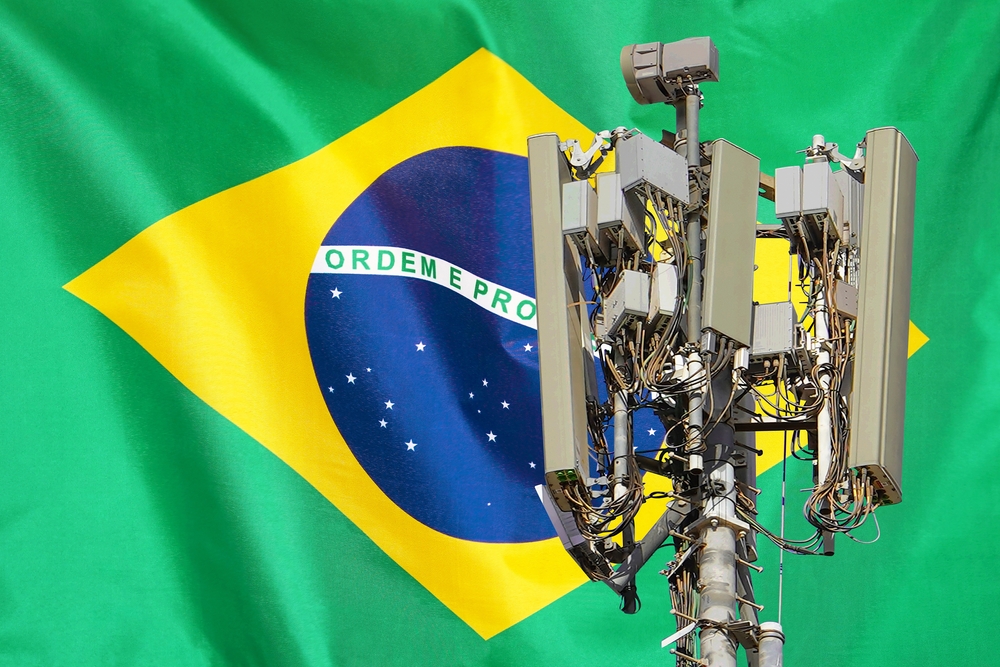Brazil has taken the helm of the G20 this year, marking a significant moment in its history. As the current G20 President, Brazil has the opportunity to influence global economic governance and address pressing international issues. This elevated role puts Brazil at the forefront of worldwide discussions on finance, trade, and development, showcasing its leadership potential.
Brazil’s presidency comes at a crucial time when international cooperation is more important than ever. With a focus on reforming the international financial architecture, Brazil aims to drive discussions and initiatives that promote sustainable growth and stability. By holding key positions, Brazil can shape policies that impact not only its own economic landscape but also the global economy.
Brazil’s G20 Presidency is also an opportunity for the country to act as a bridge between emerging and established powers. This strategic position allows Brazil to foster dialogue and cooperation, enhancing its diplomatic relationships and amplifying its voice on the global stage. The effectiveness of Brazil’s leadership in this role could set a precedent for future international engagements and collaborations.
Table of Content
ToggleKey Takeaways
- Brazil leads the G20 in 2024, influencing global economic governance.
- Focus on reforming international financial systems is crucial.
- Brazil acts as a bridge between emerging and established powers.
Overview of the G20
The G20, an international forum, plays a crucial role in global economic governance. It involves high-level discussions and decisions made by the world’s major economies. This section will explore its historical background, structure, and Brazil’s involvement.
Historical Context
The G20 was established in 1999. It originated in response to financial crises in the late 1990s. This initiative aimed to bring together major economies to discuss and promote international financial stability.
Originally a meeting of finance ministers and central bank governors, it started as a response to the 1997 Asian financial crisis. The group has since evolved to include annual meetings of heads of state. The inaugural leader summit took place in 2008 during the global financial crisis, marking a significant expansion of the G20’s mandate.
Structure and Member Countries
The G20 consists of 19 countries and the European Union. The member countries are major contributors to the global economy. These include the United States, China, India, and Brazil, among others.
The structure of the G20 includes regular meetings of finance ministers and central bank governors. Leaders’ summits are held annually to discuss pressing global issues. Additionally, working groups and thematic sessions are organized to address specific topics like trade, climate change, and development.
Decisions are collaborative but non-binding, relying on consensus. This structure ensures that diverse perspectives are considered while promoting coordinated action.
Brazil’s Role in the G20
Brazil has played a significant role in the G20 since its inception. Its active participation reflects its status as a major emerging economy. Brazil held the G20 Presidency in 2008.
During its presidency, Brazil focused on reforming international financial institutions. It also emphasized the need for greater representation of emerging economies in global governance. Brazil advocated for stronger regulatory frameworks in the financial sector.
Brazil continues to influence discussions on trade, sustainable development, and financial stability within the G20. Its efforts contribute to shaping policies that address both global and national economic challenges.
Presidential Agenda
Brazil’s G20 Presidency is marked by clear policy priorities, focused climate change initiatives, and efforts toward economic growth and sustainable development. The agenda aims to position Brazil as a significant player in global economic governance.
Policy Priorities
Brazil has prioritized economic stability and growth during its G20 Presidency. The focus is on strengthening trade relationships and enhancing financial regulatory frameworks. This involves collaborating closely with other G20 members to ensure transparent and fair trade practices.
Efforts are being made to combat corruption and improve governance within financial institutions. Brazil also aims to integrate more developing nations into the global market, believing that inclusive growth benefits everyone.
Climate Change Initiatives
A major component of the Brazilian presidential agenda is addressing climate change. Brazil is committed to reducing greenhouse gas emissions and promoting renewable energy sources.
Programs have been introduced to protect the Amazon rainforest, a vital global carbon sink. The country seeks to leverage its leadership position to encourage other G20 nations to comply with international climate agreements and increase investments in green technologies.
Economic Growth and Sustainable Development
Economic growth and sustainable development go hand in hand in Brazil’s agenda. The focus is on achieving high GDP growth while ensuring that development is environmentally sustainable.
Brazil is pushing for policies that support innovation, particularly in green technologies and sustainable agriculture. Efforts are also being made to reduce poverty and inequality through social programs that target the most vulnerable populations.
By encouraging sustainable practices and innovative solutions, Brazil aims to set an example for other G20 nations, demonstrating that economic growth does not have to come at the expense of the environment.
International Relations and Diplomacy
Brazil’s G20 Presidency has played a significant role in shaping international relations and diplomacy. This section delves into Brazil’s collaborative efforts with other nations, its engagement with the Global South, and cooperation with the United Nations.
Collaboration with other Countries
Brazil’s diplomatic strategy emphasizes building strong partnerships with both developed and developing countries. This approach enhances trade relations and opens new markets. Brazil negotiates key trade agreements and participates in international forums, such as the World Trade Organization.
The G20 platform allows Brazil to voice its opinions on global economic policies. The nation’s active participation in international negotiations, especially during the Doha Round, highlights its diplomatic efforts. Brazil balances its interests with those of other G20 nations, showcasing its diplomatic adaptability.
Global South Engagement
Brazil places a high priority on strengthening ties with other countries in the Global South. This engagement seeks to promote mutual development and economic cooperation. As a leader within the G20, Brazil advocates for the interests of the Global South, ensuring their voices are heard in global economic policies.
Through strategic alliances with nations in Africa, Asia, and Latin America, Brazil fosters economic partnerships and technical cooperation. The country’s diplomatic efforts include joint initiatives on sustainable development and poverty reduction. Brazil’s leadership within the G20 underscores its commitment to representing the Global South.
United Nations Cooperation
Brazil collaborates closely with the United Nations to promote global peace, security, and development. The country’s role within the UN includes active participation in peacekeeping missions and humanitarian efforts. Brazil’s presence in the UN reinforces its commitment to multilateral diplomacy.
The nation’s cooperation with the UN also involves addressing global challenges like climate change, poverty, and inequality. Brazil supports initiatives aimed at achieving the Sustainable Development Goals. By engaging in UN dialogues and negotiations, Brazil contributes to shaping international policies that reflect its foreign policy priorities.
Economic Policies and Initiatives
Brazil’s G20 presidency focuses on strengthening trade and investment, promoting innovation and technology, and involving key economic actors like central bank governors.
Trade and Investment
Brazil aims to increase its influence in global trade. The Brazilian government seeks to create a favorable environment for investment and trade deals. They prioritize lowering trade barriers and encouraging foreign investments. Brazil tries to boost its economic profile by participating in international economic summits and organizations. For instance, Brazil’s involvement in the G20 highlights its ambition in the trade arena.
Innovation and Technology
The Brazilian government prioritizes innovation to drive economic growth. By investing in technology and research, they hope to foster new industries and expand existing ones. This initiative is crucial for improving productivity and staying competitive globally. Brazil supports startups and tech hubs, aiming to become a leader in innovation and technology.
Role of Central Bank Governors
Central bank governors play a key role in Brazil’s economic policies. They help regulate monetary policy to ensure economic stability. Their decisions impact inflation, interest rates, and currency value. The finance minister works closely with these governors to implement policies that foster economic growth. Brazil’s approach ensures that central bank governors remain integral to their strategic economic decisions.
Social Issues and Human Development
Brazil’s G20 presidency has placed a strong emphasis on tackling social issues and fostering human development. This includes initiatives focused on poverty alleviation, combating hunger, and improving education and healthcare.
Poverty Alleviation Programs
Brazil has launched several poverty alleviation programs to improve the living conditions of its citizens. One of the most notable is the Bolsa Família program. This initiative provides financial aid to low-income families, helping them access basic necessities and reduce deprivation.
The program also promotes school attendance and healthcare visits by making financial aid conditional on participants’ compliance with these requirements. This approach not only supports immediate needs but also fosters long-term development by enhancing education and health outcomes.
Brazil’s focus on reducing poverty aligns with the broader goals of sustainable development and demonstrates a commitment to improving the quality of life for all its citizens. By addressing root causes of poverty, the country aims to create a more inclusive and equitable society.
Fight Against Hunger
Brazil’s G20 presidency has prioritized the fight against hunger. The Zero Hunger strategy has been central to these efforts. This multifaceted approach combines direct food assistance with policies aimed at boosting local food production and securing access to nutritious food for vulnerable populations.
The strategy seeks to ensure food security through a combination of economic support for small farmers, investment in agricultural infrastructure, and social programs that provide meals to those in need. By addressing both supply and demand aspects of food security, Brazil aims to eliminate hunger and improve the nutritional status of its citizens.
Efforts to combat hunger are critical for sustainable development and demonstrate Brazil’s commitment to building a healthier, more resilient population. Through strategic policies and collaboration with civil society, the country is making significant strides in ensuring that no one goes hungry.
Education and Health
Improving education and healthcare is a key priority for Brazil’s G20 presidency. Investments in public education aim to increase access to quality schooling for all children. Initiatives include building new schools, training teachers, and providing students with the necessary resources to succeed academically.
On the health front, Brazil has focused on expanding access to healthcare services, particularly for underserved communities. Programs such as the More Doctors Program aim to increase the number of healthcare professionals in remote and rural areas. By enhancing both education and health services, Brazil is working towards better human development outcomes.
These efforts are essential for sustainable development, as they equip individuals with the knowledge and well-being needed to contribute meaningfully to society. Improvements in education and healthcare are fundamental to building a strong, prosperous nation.
G20 Summits
G20 Summits are critical gatherings where world leaders discuss and address major global economic issues. This section will cover the specifics of Brazil’s role in hosting the Summit in Rio, the participation of various leaders, and the involvement of civil society and NGOs.
Summit in Rio
The G20 Summit held in Rio marks a significant event. Brazil’s role as host showcases its growing influence in global economic governance. The summit provides a platform for addressing key economic challenges, including trade, climate change, and financial stability.
Held in a vibrant city known for its cultural diversity, the Summit in Rio aimed to foster cooperation among member nations. Brazil’s leadership emphasized the importance of collaborative efforts to address global economic concerns. The location added a unique dimension to the event, highlighting Brazil’s strategic position in international diplomacy.
Leaders’ Participation
The G20 Summit attracts leaders from the world’s largest economies. Their participation is crucial for effective decision-making. During the Summit in Rio, leaders from countries like the United States, China, Germany, and Japan convened to discuss pressing economic issues.
These discussions often involve debates on trade policies, financial regulations, and strategies for sustainable development. The presence of high-level officials, including heads of state and finance ministers, underscores the significance of the summit. Their collaborative efforts aim to create policies that drive global economic growth and stability.
Civil Society and NGO Involvement
Civil society organizations and NGOs play a pivotal role in the G20 Summit. They provide valuable insights and perspectives on various issues, from human rights to environmental sustainability. Involvement in the Rio Summitensured that diverse voices were heard.
These organizations often host side events, workshops, and panels to address specific topics. Their participation helps to ensure that the summit’s decisions reflect broader societal concerns. By engaging with civil society and NGOs, the G20 can better address global challenges in a holistic manner.
G20’s Impact on Global Policy
The G20 has significantly shaped global policies through its focus on economic stability, governance reforms, and energy funding. This influence extends to major organizations like the IMF, World Bank, and WTO.
Economic Stability
One of the G20’s main contributions has been enhancing economic stability worldwide. The group addresses financial crises, promotes policies to avoid recessions, and fosters economic growth. Their meetings often result in coordinated actions by member countries, stabilizing global markets.
The G20 also supports frameworks developed by the IMF and World Bank. This includes financial support and structural reforms to stabilize economies. By advocating for sound fiscal policies, the G20 helps promote sustainable economic development and reduces the risk of global financial shocks.
Global Governance Reforms
The G20 has pushed for reforms in global governance to create a more inclusive and effective international system. One key area of their focus has been increasing the representation of emerging economies in decision-making processes. This shift is evident in institutions such as the World Bank and IMF.
Additionally, the G20 promotes transparency and accountability in international institutions. Through these efforts, they aim to ensure that the rules governing the global economy are fair and equitable. This includes advocating for anti-corruption measures and better regulation of global financial markets.
Energy Transition and Funding
The G20 plays a crucial role in driving the global energy transition. They work on policies that support a shift from fossil fuels to more sustainable energy sources. This includes setting targets for reducing greenhouse gas emissions and promoting investments in renewable energy.
Funding for energy transition is a top priority for the G20. They coordinate funding efforts from multilateral banks like the World Bank to support clean energy projects. By doing so, they help bridge the financing gap for developing countries, ensuring they can participate in the global shift towards sustainable energy.
Brazil’s Legacy and Future Role
Brazil’s G20 Presidency has highlighted its leadership and strategic vision. Under its guidance, Brazil focused on sustainable finance and inclusive growth among emerging economies.
Assessment of the Presidency Term
Brazil officially assumed the G20 Presidency with a clear agenda. They aimed to foster economic stability and growth. Brazil promoted sustainable finance, pushing for greener investments. This was seen as a crucial step for combating climate change and encouraging responsible investment practices.
Emerging economies were a focus, with Brazil highlighting their importance on the global stage. Their presidency term saw a series of initiatives designed to support these countries.
A notable achievement was Brazil’s ability to engage diverse international partners. This made the G20 more inclusive, reflecting a broader range of voices and interests. This inclusive approach may pave the way for future leadership roles within global organizations.
Frequently Asked Questions
Brazil’s G20 presidency in 2024 is marked by several priorities and initiatives that aim to address global economic challenges and influence international policy-making. These efforts are closely aligned with Brazil’s national interests.
What are Brazil’s priorities for its G20 presidency term?
Brazil aims to focus on inclusive economic growth, sustainable development, and stronger multilateral trade agreements. Emphasis is on cooperation among G20 members to tackle global economic issues.
Which initiatives is Brazil focusing on during the G20 Summit?
Brazil is promoting initiatives on digital transformation, climate change actions, and enhancing global health systems. Efforts also include improving food security and fostering innovation in energy.
How does Brazil’s G20 presidency plan to address global economic challenges?
Brazil is planning to address economic challenges by encouraging coordination on fiscal policies, reducing trade barriers, and supporting international monetary cooperation. The goal is to stabilize and stimulate global economic growth.
In what ways will Brazil’s role in the G20 affect international policy-making?
Brazil’s leadership in the G20 will likely influence international policy-making by advocating for more inclusive and fair economic policies. It may also push for reforms in global financial institutions to better represent developing countries.
What is the significance of the G20 Summit being hosted by Brazil in 2024?
Hosting the G20 Summit in 2024 is significant for Brazil as it provides an opportunity to showcase its leadership on the global stage. It also allows Brazil to highlight its economic potential and its commitment to addressing international challenges.
How does Brazil’s G20 agenda align with its national interests?
Brazil’s G20 agenda aligns with national interests by promoting economic stability, enhancing trade relations, and addressing social inequalities. These efforts aim to create a favorable environment for domestic growth and development, reflecting Brazil’s strategic goals in the international arena.











